walk to her
First Care Women's Clinic continues to impact lives
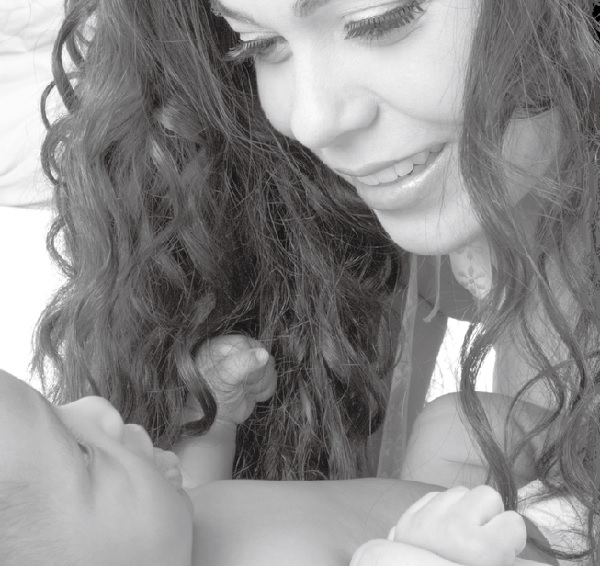
▲An unplanned pregnancy does not mean an unaccepted baby. (Photo courtesy: First Care)
Opposing Camps on Life Choices
On January 22, 2014, marches from the Lincoln Memorial in Washington, the capital of the United States, to the Capitol Building, to the Supreme Court were packed with people. Placards were waving in the biting cold wind, and slogans were flying in the air with snowflakes. Temperatures in the teens and 10 degrees Fahrenheit couldn't dampen the enthusiasm of these people, who were here to commemorate the 41st anniversary of the passage of Roe vs. Wade, the legal abortion legislation, even though their views on abortion are on opposite ends.
On the same day, West Palm Beach, FL, which is always warm, also felt slightly chilly. Next to the noisy street stands the First Care Women's Clinics (hereinafter referred to as First Care) quietly. The spacious and bright hall is waiting for the girl who is about to arrive. She speculated that she might be pregnant, but the decision of whether to keep the baby made her uneasy. Perhaps due to pressure from her family or boyfriend, or perhaps because she was too young or in financial distress, she really didn’t know what else to do besides having an abortion. However, the girl chose to go to First Care for a preliminary pregnancy test instead of the abortion clinic across the street.
Since the 1973 act was passed, more than 56 million abortions have been performed in the United States. These 56 million lives ended under the mother's choice and at the hands of doctors.
For forty-one years, many Christians have tried to save these lives. Some have protested in front of abortion clinics, some have sought legislation restricting abortion, and some have participated in 40 Days for Life (http:// www.40daysforlife.com/), and some even shot doctors who performed abortions. These various actions carried out in different ways, through different channels, at political, judicial and other levels have converged into the torrent of the "Pro-Life Movement". Regardless of whether it is legal or reasonable, they stand up and speak out for those little lives that cannot protect themselves.
At the same time, there is also a group of believers who respect life and have set up pregnancy centers across the United States. They hope that through practical assistance and sincere care, these women who are at a loss when facing unexpected pregnancy will understand the preciousness of the life of the fetus in their belly and the value of their own life. .
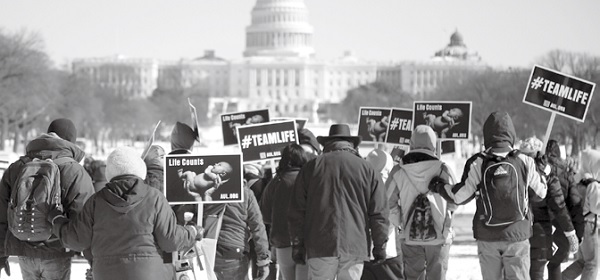
▲The cold wind couldn't stop the surging emotions, and the crowds came here to commemorate the 41st anniversary of the legalization of abortion in the United States. (Picture source: http://1350kman.com/wp-content/uploads/2014/01/Abortion-Protest-Pic.jpg)
First Care's companionship
In 1983, two pregnancy centers were established in Palm Beach County, South Florida, namely Alpha Care in West Palm Beach and TLC in Boca Raton. Services include free pregnancy tests, Counseling, parenting courses, etc. The purpose is to provide correct and objective information so that women who do not intend to keep the fetus can clearly understand the impact of abortion on the body, mind and soul, and to help them see that besides abortion, there are other options for raising or raising the fetus themselves. It is true that the decision to keep the fetus will bring difficulties and heartache, and will require a lot of sacrifice, but their choice is a decision to affirm themselves and the life of the little one in their belly, not a decision to take away a life.
Volunteers and colleagues at the pregnancy center will accompany them all the way, giving them the courage to face pressure from all sides. They will also provide various referrals and use resources from the government or gospel organizations to solve their medical or financial needs. During the counseling process, volunteers will introduce the gospel, hoping that they will invite God to face life's problems together and choose the eternal life God gives.
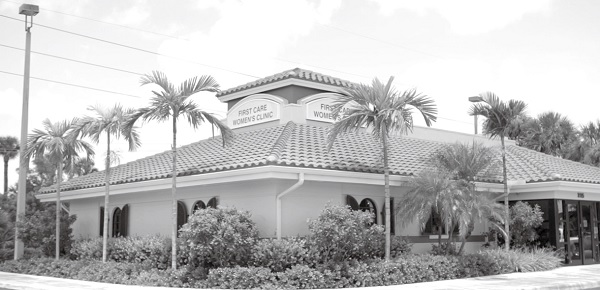
▲First Care Women’s Clinic delivers messages that affirm the value of life and accompanies women in making life decisions. (Photo courtesy: First Care)
In 1995, the two pregnancy centers merged to form First Care, with a total of four centers in the north, central, and south districts of the county, plus the neighboring city of Coral Springs in Blois County. Sharon Brewer has been the director of Alpha Care Pregnancy Center since 1992 and served as the executive director of First Care after the merger in 1996. She has been serving for 22 years and has implemented the organization's two core purposes - rescuing unborn children and preaching Christ. Daily work includes formulating the vision together with the board of directors, developing services to implement the vision, managing and cultivating paid staff and volunteers, fundraising, contacting the church community, etc. One of the challenges is to make the services provided by the institution relevant to the needs of the target patients and not outdated.

▲Pak Shaulun, who has been involved in "pro-life" ministry for 22 years, encouraged believers that faithfulness will be rewarded. (Photo courtesy: First Care)
The need for ministry transformation
Bai Xuelun observed that the number of people coming to First Care for pregnancy tests has gradually decreased. A study conducted by the center in 2011 showed that only 20% of these women considered abortion. What are the causes?
Over the past decade or so, as the price of pregnancy tests has dropped and they are now available in general pharmacies and supermarkets, the free pregnancy tests offered by centers have lost their appeal. Since the U.S. Food and Drug Administration (FDA) approved the RU-486 (Mifepristone) abortion pill in 2000, many people have chosen to have abortions, thinking that they only need to swallow two pills and they will be fine. Deal with this unexpected "trouble" in a trace manner. The FDA also approved two emergency contraceptive pills in 1998 and 1999, with the purpose of preventing implantation of a fertilized egg. One of the drugs, Plan B, can be purchased directly in pharmacies by women over the age of 18 since 2006, without a doctor's prescription.
Medical abortion currently accounts for about a quarter of all abortions, and its acceptance is gradually increasing, which has also lifted the negative image originally associated with the abortion procedure. The number of women who come to First Care for a pregnancy test and intends to have an abortion has dropped significantly. This does not mean that women with unwanted pregnancies are willing to keep the fetus, but that they go directly to abortion clinics after taking pregnancy tests at home rather than going to First Care first. Such institutions receive counseling.
Since the purpose of the organization is to rescue fetuses and preach Christ, Sharon Bai must make a choice at this time - maintain the current service or upgrade to a medical clinic. After all, for ordinary women, pregnancy is a physical and medical issue before it becomes a spiritual and emotional issue.
In order to allow pregnant women to understand the wonders of life's growth and be willing to keep their children, as early as 1996, each First Care center has purchased ultrasound scanning equipment, allowing expectant mothers to see the gradually forming fetus and the inner parts of its small body. A strong heartbeat. Now that the equipment is available, can we expand the equipment, hire medical staff, and add initial prenatal check-ups, sexually transmitted disease tests, and even cervical smear tests to the original basic services, so as to move towards the long-term goal of comprehensive gynecological health care?
So starting in 2011, First Care officially changed its name to the Women's Clinic to provide more comprehensive medical services.
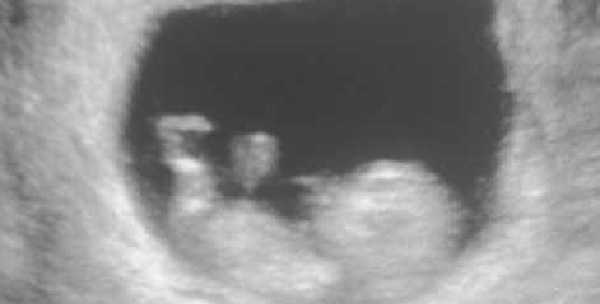
▲Ultrasound scanning allows expectant mothers to see the gradually forming fetus in their belly.
(Image source: http://0.tqn.com/d/pregnancy/1/0/s/w/3/11converse11us.jpg)
Choose life, the prospects are very different
Making such a huge change requires not only courage, but also continued support of financial and human resources. Raising money is hard, and finding Christian medical staff willing to commit is even harder. Currently, except for the Belle Glade Center in the far west, all other clinics have volunteer nurses on duty. After the counselors have an initial conversation with the women who come to the center, the nurses will perform pregnancy tests and answer all medical questions. Although there is currently no obstetrician and gynecologist to join the team, Bai Xuelun believes that God will provide it.
After the institution reopened, 74% of the women who came for pregnancy tests considered abortion. Bai Xuelun emphasized the importance of reaching out to women who are inclined to have abortions. She said that after women find out they are pregnant, if they first go to Planned Parenthood (Planned Parenthood, the most powerful organization that supports and provides abortions in the United States) to seek services, 80% of them will choose to fall into the trap; if they go first to a respected institution like First Care, Institutions of life, 80% choose to keep their children.
However, First Care's services do not stop at preliminary pregnancy tests and counseling. To build lasting relationships with expectant mothers, First Care offers parenting classes, and baby clothing and supplies. If adoption is considered, we will also help contact the adoption agency to start looking for a suitable family for the child.
If it is discovered that you are not pregnant, the counselor will also gently remind you of the anxiety and harm caused by sex before or outside of marriage, and teach you how to maintain a healthy relationship between men and women. During the conversation, it can be found that many boyfriends do not value their girlfriends and only want to enjoy the fun of sexual intercourse without being willing to bear the consequences. According to statistics, 70% of abortions are coerced by the male partner.
When S came to First Care, she had made up her mind not to have children. She had no money, no job, no hope, and her boyfriend had made it clear that he would not take any responsibility. Although she blamed herself for being so unloving, she really didn't know what other choice she had.
S saw from the ultrasound scan that she was pregnant with twins, and her mind began to waver. The counselor's kind and warm encouragement helped her calm down from her panic and calmly consider whether abortion was the outcome she wanted. Perhaps she should also seriously consider other solutions. With the help of First Care, S returned to church again, and the counselor continued to confirm her decision.
S said that he had never felt such care in any medical clinic. Because of the message of respecting life conveyed by First Care, she now has a pair of lovely children with completely different life prospects.
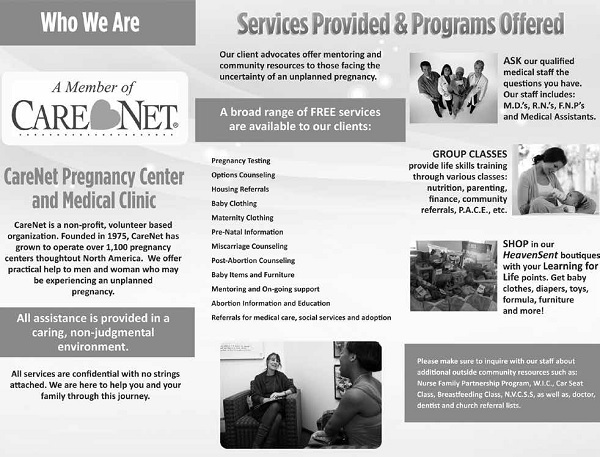
▲Services provided by pregnancy center ministries include pregnancy tests, counseling, baby clothing, medical welfare referrals, etc. (Image source: http://static.squarespace.com/static/5126b0c7e4b08376dc009ada/t/518a849ae4b00d1f32fa1f3f/1368032410811/carenet_inside_final.jpg)
wider country
S is just one of many cases. According to First Care statistics, 459 babies' lives were saved from 2012 to 2013, and 1,664 women heard the gospel of Jesus Christ. This ministry is not only an important link in the "Pro-Life Movement", but also a gospel workshop. Sharon Bai emphasized that First Care works closely with local churches. The organization itself has set up a pastoral advisory group with volunteers from various churches. Members also help organize fundraising activities, including the annual Walk for Life, the Baby Bottle Boomerang to raise change, etc. .
What's more important is that once someone accepts the gospel, the counselor will contact the neighboring church and solemnly refer her to the women's fellowship or care group. Eighty percent of the women who come to First Care have never been to a church. They have just come to believe in the Lord and are unfamiliar and alienated from the church environment and culture. If they are only handed a church business card and asked to find their own way, even if they have the courage to step into the church door, how many people will be willing to announce that they are pregnant and need to seek spiritual support and practical assistance? Bai Xuelun pointed out that such referrals can help the church and the woman establish a relationship more smoothly.
In the West Palm Beach clinic, there is also an elegant chapel, with rows of long wooden chairs facing a round window with stained glass. The building used by the clinic was dedicated by a Catholic. His request was to set aside this room so that Catholics who wanted to save the lives of unborn babies could pray and watch mass here. The round window faced the abortion clinic across the street.
When Bai Sharon brought this proposal to the board of directors and pastoral advisory group, which were all Protestants, he received a positive and enthusiastic response. One of the pastors responded: “Isn’t this how the kingdom of God should be viewed?”

▲The lives that First Care affects, whether they are mothers or babies, are real and precious individuals. (Image source: http://blog.heritage.org/wp-content/uploads/baby2.jpg)
impact real lives
Since its establishment, First Care has experienced numerous challenges. For Bai Xuelun, the most difficult thing is recruiting volunteers and raising funds.
Although there are many retired "leisure" people in South Florida, they often arrange their time for leisure and travel, and are willing to do casual activities rather than have a fixed schedule. First Care needs to hire salaried staff to maintain basic operations.
The 2008 financial tsunami also brought fundraising pressure. When President Obama took office in 2009, he immediately canceled the Healthy Relationship Education Grant, which was originally used to promote the principle of chastity, and transferred the funds to institutions that provide abortions, forcing First Care to cut personnel. In recent years, with the help of many long-term supporters, the number of donations has gradually increased.
Looking into the future, in addition to working towards a comprehensive medical clinic, Bai Xuelun also hopes that pastors will use First Care's services and materials to continue to deliver messages that affirm the value of life. Faced with abortion practitioners who destroy the dignity of life, all believers can do is to "speak the truth with love" and no longer stand on the wall and watch, but stand up to protect the lives of the fetus and mother.
The opposition between "pro-life" and "pro-choice" (pro-choice or pro-abortion) appears in different fields, and the media mostly focuses on large-scale demonstrations or legislative procedures. For many years, many believers have been committed to electing a president who respects the value of life, hoping that he will appoint justices who share the same view and reverse the current Supreme Court decision that abortion is legal. There are also believers who organize a prayer team to continue praying for everyone who comes in and out of the abortion clinic, using kind words to invite them to further understand the truth of life.
The most recent statistics (2011) show that the total number of abortions per year and the abortion rate per 1,000 people in the United States are declining year by year. Does this mean that the pro-life movement is successful? While these figures may provide some encouragement to dedicated believers, they still represent more than a million young lives lost each year and a million women making irreversible decisions. The pro-life movement cannot relax yet, let alone give up.
The battle to protect life continues, and new issues are in full swing, such as same-sex marriage and end of life. How should believers face these challenges of culture, ideology, and beliefs? Bai Xuelun solemnly pointed out that faithfulness can be rewarded; whoever serves faithfully will definitely see results.
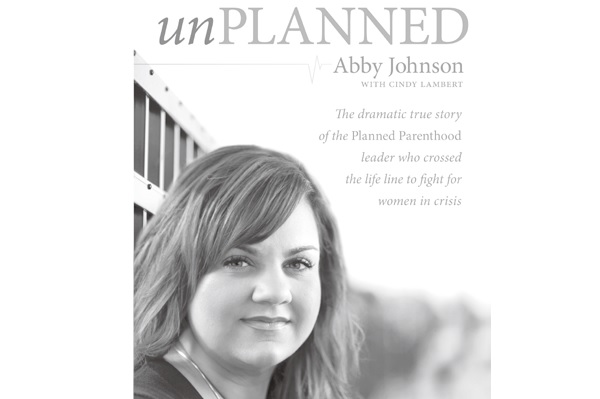
▲Abby Johnson認識了墮胎對有形有體生命的傷害後,決意離開墮胎業者,義無反顧成為支持生命的勇士。(圖片來源:http://ambassadorspeakers.com/ACP/_img/Unplanned%20by%20Abby%20Johnson%20Book%20Cover.jpg)
Both the co-workers and volunteers serving in First Care are all believers with great enthusiasm for the "Pro-Life Movement". However, their purpose is not to force these women who are considering abortion into their own camp; rather, they come to her side, accompany her through the crisis of unexpected pregnancy, and embark on the opportunity to respect life. In a pregnancy center like First Care, although it can only affect one person at a time, the life is real; 10,000 babies have been saved in the past 30 years, and these lives are also real.
T is pregnant again. Her previous unwanted pregnancies had all ended in abortion, but this time her boyfriend still forced her to abort the child. Young and beautiful, she makes a career out of stripping. She sees her body as just a tool and thinks that repeating the same mistakes may not make the situation worse.
However, this time she went to First Care first and received care, respect, love and companionship. For the first time, she saw the value of her own life and the wonder of the life of the fetus in her belly. Through this group of believers who respected life, T was willing to keep his children and return to church life again.
The church that T went to also happened to be Bai Xuelun's church. Every Sunday morning, when Bai Xuelun takes her granddaughter to the nursery and hands it over to T who serves there, Bai Xuelun's eyes are always filled with tears of gratitude. What she saw was a renewed T inside and out, a life restored to prosperity.
Introduction to Pregnancy Center Ministries
Pregnancy centers, also known as Crisis Pregnancy Centers, were first created in Canada in 1968 by the Birthright organization; in 1971, the Alternatives to Abortion organization was established, which later became Heart Rhythm International Organization" (Heartbeat International); in 1980 the "Christian Action Council" (Christian Action Council), which later became the "Care Net" (Care Net), began to promote pregnancy center ministry. At present, most pregnancy centers in the United States have joined one of three organizations: "Production Rights", "Heart Rhythm International", and "Care Network".
According to the "Care Network", the legalization of abortion is extremely controversial, but the purpose of the ministry is to provide a way out for women who are unwilling to be coerced into having an abortion, and to convey a positive life choice. Time magazine once described pregnancy centers as the "kind, quiet, non-judgmental" side of the pro-life movement.
In the past, it was reported that pregnancy center advertisements were false, misleading people into thinking they were abortion clinics. It was also accused that volunteer counselors presented abortion pictures and information about the process and sequelae in order to deter pregnant women who were inclined to have abortions. There were even criticisms of ministries that were too enthusiastic about propaganda. The gospel is off-putting.
First Care has strict training and requirements for paid staff and volunteers. Sharon Bai pointed out that the ministry is unwilling to do any illegal behavior and is absolutely clean and leaves no excuses. That's one of the reasons she's working hard to develop a medical clinic, where medical staff can answer any medical questions.
"Pro-life"
Or "anti-abortion"?
At present, mainstream media in the United States often use the term "anti-abortion" to label the "pro-life movement." Indeed, the pro-life movement is primarily driven by the fight against the violence of abortion. However, the "pro-life" movement advocates the dignity and value of life, not only for fetuses and pregnant women, but also for broader issues such as end-of-life care. Far from fully representing "pro-life," "anti-abortion" simply attempts to cast a negative light on a life-affirming message using negative words.
Related information and further reading
1. For data on abortion, please refer to The Guttmacher Institute (AGI, http://www.guttmacher.org/sections/abortion.php), Centers for Disease Control (CDC, http://www.cdc.gov/mmwr /preview/mmwrhtml/ss6208a1.htm?s_cid=ss6208a1_w) and Number of Abortions (http://www.numberofabortions.com/).
2. For details about First Care ministry, please refer to http://www.first-care.org/ or http://firstcareoptions.com/.
三、有關懷孕中心事工,請參考Care Net(https://www.care-net.org/aboutus/)以及Crisis Pregnancy Centers(http://en.wikipedia.org/wiki/Crisis_pregnancy_center)。閱讀Wikipedia資料時需留意其客觀性,仍有許多主流媒體對此事工抱持負面態度。
四、Unplanned, by Abby Johnson with Cindy Lambert, Tyndale and Focus on the Family, 2010。Abby Johnson原為「計畫生育聯合會」在德州一家診所的主任,相信女子有權利掌管自己的生育機能。任職的診所每週固定施行墮胎手術,鄰近「生命聯盟」(Coalition for Life)機構每天有人在診所旁禱告,並與Johnson結識。她在一次協助手術時,從超音波裡清楚看見胎兒在吸引器下破碎、消失,當下意識到墮胎所傷害的,是有形有體的生命。於是決意離開墮胎業者,邁入「生命聯盟」大門,從此義無反顧成為支持生命的勇士。
